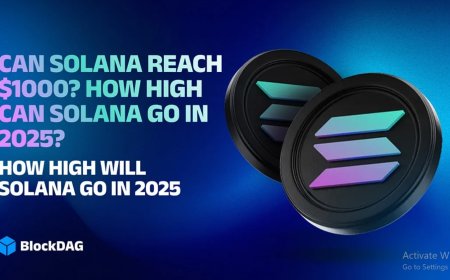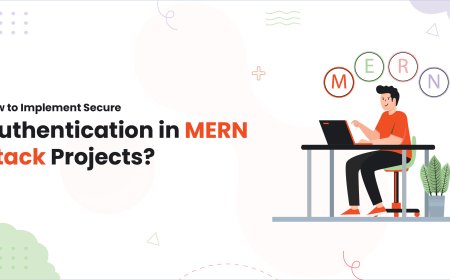Azure Sentinel and Threat Intelligence: Consultant-Guided Security Transformations
In this article, we explore how Azure Sentinel, combined with threat intelligence and expert consultant guidance, transforms cybersecurity operations in organizations of all sizes.

Introduction
In todays digitally connected world, organizations face an ever-growing number of cyber threats. From ransomware attacks to sophisticated nation-state hacking, the complexity and frequency of security incidents are escalating rapidly. This reality demands a modern approach to cybersecurityone that goes beyond traditional defense mechanisms and embraces proactive threat detection, real-time analytics, and automation. Microsoft Azure Sentinel, a cloud-native Security Information and Event Management (SIEM) and Security Orchestration Automated Response (SOAR) solution, has emerged as a critical tool in this space.
However, successfully implementing and leveraging Azure Sentinels full capabilities requires expertise. This is where a managed azure services becomes indispensable. With their deep knowledge of Azure security architecture and threat intelligence integration, these consultants guide organizations through security transformations that dramatically enhance threat visibility and response effectiveness.
In this article, we explore how Azure Sentinel, combined with threat intelligence and expert consultant guidance, transforms cybersecurity operations in organizations of all sizes.
Understanding Azure Sentinel: The Cloud-Native SIEM
Azure Sentinel is designed to provide a birds-eye view of an organizations security posture by aggregating data from across the enterprise whether on-premises, in Azure, or in other cloud environments. It ingests security signals and logs, analyzes them using artificial intelligence and machine learning, and provides actionable insights. Unlike traditional SIEMs, Azure Sentinel is scalable, flexible, and deeply integrated with other Azure security tools.
Key Features of Azure Sentinel:
-
Data Collection at Cloud Scale: Azure Sentinel can connect to hundreds of data sources including Microsoft 365, Azure AD, AWS, on-prem firewalls, VPNs, and custom data sources.
-
AI-Driven Threat Detection: It uses machine learning models to reduce false positives and detect anomalies that signal sophisticated attacks.
-
Automation & Orchestration: Automated workflows can trigger incident responses, such as blocking IP addresses or isolating compromised endpoints.
-
Built-in Threat Intelligence: Azure Sentinel integrates threat intelligence feeds to correlate alerts with known attack patterns and indicators of compromise (IOCs).
While these features sound promising, configuring Azure Sentinel optimally, integrating the right data sources, and creating customized analytics rules require specialized skills.
The Role of Threat Intelligence in Modern Security
Threat intelligence involves collecting, analyzing, and applying knowledge about existing or emerging cyber threats. It provides contextsuch as attacker motives, methods, and infrastructurethat enriches security alerts and helps prioritize responses.
Integrating threat intelligence into SIEM platforms like Azure Sentinel enhances detection accuracy and accelerates incident response. For example, correlating an internal alert with a known malicious IP address or phishing campaign can quickly validate the severity of an incident.
Threat intelligence sources can be:
-
Commercial threat feeds
-
Open-source intelligence (OSINT)
-
Industry Information Sharing and Analysis Centers (ISACs)
-
Internal telemetry and logs
However, threat intelligence is only valuable if its actionable and properly integrated. This integration and contextualization is a complex task.
Why a Microsoft Azure Consultant is Critical for Security Transformation
Given the technical sophistication involved in deploying Azure Sentinel and weaving in threat intelligence, organizations often partner with a microsoft azure consultant to navigate the journey.
Expertise in Solution Architecture
A Microsoft Azure consultant understands the architecture of Azure Sentinel and the broader Azure security ecosystem. They can design a solution tailored to an organizations size, industry, regulatory requirements, and existing IT landscape.
Data Integration Mastery
One of the biggest challenges is connecting Azure Sentinel to the right data sources from cloud workloads and identity providers to legacy on-prem systems and third-party applications. A consultant knows how to implement connectors, normalize data, and ensure consistent log ingestion for effective analysis.
Custom Analytics and Automation
Every organization faces unique threats and compliance challenges. Azure Sentinels power lies in its custom analytics rules and automated playbooks, which must be crafted carefully to detect relevant threats and reduce alert fatigue. Microsoft Azure consultants develop these tailored detection mechanisms and automated responses, balancing security and operational efficiency.
Change Management and Training
Beyond deployment, a consultant leads change management initiatives to embed Azure Sentinels capabilities into daily security operations. They train security analysts on using the platform effectively and on interpreting threat intelligence insights to make informed decisions.
Key Steps in a Consultant-Guided Azure Sentinel Security Transformation
1. Security Assessment and Readiness Evaluation
Before implementation, the consultant assesses the organizations existing security infrastructure, processes, and threat landscape. This phase identifies gaps and prioritizes areas where Azure Sentinel and threat intelligence integration will have the most impact.
2. Data Source Identification and Connection
The consultant works with IT and security teams to identify critical data sources. They configure data connectors in Azure Sentinel, such as Microsoft Defender for Endpoint, Azure AD logs, firewalls, and custom logs, to create a comprehensive threat visibility layer.
3. Threat Intelligence Integration
Consultants help integrate relevant threat intelligence feeds into Azure Sentinel. They may configure both Microsofts built-in feeds and third-party commercial or open-source feeds, depending on organizational needs. This integration enriches alerts with external threat context.
4. Building Detection Rules and Analytics
Using a combination of built-in and custom Kusto Query Language (KQL) queries, the consultant builds analytics rules that detect suspicious activities such as lateral movement, data exfiltration, and phishing attempts. These rules are fine-tuned over time to reduce noise.
5. Automation with Playbooks
The consultant develops playbooks automated workflows built with Azure Logic Apps that trigger responses like user notifications, ticket creation, or firewall rule updates when incidents occur. Automation speeds up remediation and frees analysts to focus on complex threats.
6. Continuous Monitoring and Optimization
Security transformation is not a one-time project. Consultants establish ongoing monitoring frameworks, incident response playbooks, and regular tuning sessions to adapt to evolving threats. They help organizations mature their security posture continuously.
Real-World Impact: Benefits Delivered by Azure Sentinel Consultants
Enhanced Threat Detection and Reduced Response Time
Organizations see a significant drop in undetected incidents and false positives by leveraging AI-driven detection powered by threat intelligence. Azure Sentinel consultants ensure that alerts are prioritized correctly, enabling security teams to respond faster and with greater confidence.
Cost Efficiency and Scalability
Azure Sentinels cloud-native architecture eliminates the need for costly on-prem infrastructure. Microsoft Azure consultants guide organizations in scaling the solution cost-effectively, managing data retention policies, and optimizing query performance to minimize operational costs.
Regulatory Compliance
For industries like finance, healthcare, and government, compliance is non-negotiable. Azure Sentinel consultants design solutions that generate audit-ready logs, support data residency requirements, and enable rapid forensic investigations in case of incidents.
Security Team Empowerment
Consultants provide training and develop dashboards and reports that make it easier for security analysts to understand threats, track incidents, and measure key performance indicators (KPIs) empowering teams to make data-driven decisions.
Future Trends: Evolving Role of Microsoft Azure Consultants in Security
As cyber threats evolve, so does the role of the microsoft azure consultant. Future trends include:
-
Integration of AI-driven threat hunting: Consultants will increasingly leverage AI models to proactively search for threats hidden in large datasets.
-
Expansion of multi-cloud security: Consultants will help organizations secure hybrid and multi-cloud environments by integrating Azure Sentinel with other cloud providers security tools.
-
Greater use of automated incident response: The reliance on SOAR capabilities within Azure Sentinel will increase, enabling faster, autonomous remediation.
-
Focus on zero trust implementation: Azure consultants will guide organizations in embedding zero trust principles across identity, network, and endpoint security using Sentinel analytics.
Conclusion
In the face of rising cyber threats, organizations cannot afford to rely on reactive, siloed security measures. Azure Sentinel offers a powerful cloud-native SIEM and SOAR platform that, when combined with rich threat intelligence, provides a proactive, automated, and scalable security solution.
However, maximizing the benefits of Azure Sentinel requires deep expertise this is where a microsoft azure consultant becomes a strategic partner. From architecture design and data integration to custom analytics and automation, these consultants drive security transformations that enhance threat detection, reduce response times, and strengthen overall cybersecurity posture.
Investing in an Azure Sentinel implementation guided by experienced consultants is not just a technology upgrade; its a fundamental shift towards resilient, intelligence-driven security that prepares organizations for the cyber challenges of today and tomorrow.




































